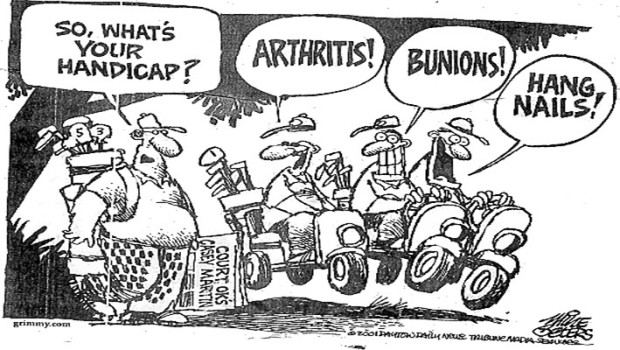Assessing the Skill Component of Handicapping
Published on April 26th, 2016
Rob Weiland takes on the topic of skill handicapping in the May edition of Seahorse magazine…
Skill handicapping is used in many sports, like golf, horse racing and polo, chess, pool and billiards, tennis and table tennis. But it just takes an hour on Google to see that in these sports the concept has contributed to some very fragmented landscapes. A wild array of options and ideas as well as geographical fragmentation.
In a way the geographical fragmentation is logical as skill handicapping is often based on a mix of subjective judgment and mathematical formulas, where the subjective elements require intimate knowledge of the players and their ability.
But also within individual countries there is little or no unity, quite often until you get right down to club level competitions. In sailing terms we then are at the level of PHRF – with all the controversy that implies.
It seems not an easy road to take. I see huge bureaucracy and officials constantly under pressure, as well as the complexity being used as excuses for poor results in scoring and its management. It all sounds alarmingly familiar.
A few of the quotes on the subject that I found on the internet made me chuckle. Like this one on horse race handicapping: ‘One of the joys of horse racing, at least for those of us of an intellectual bent, is handicapping.’ Intellectually bent, good one.
And on Real Tennis handicapping: ‘Even the most experienced of players are at times confused by the apparent black art behind handicap adjustments.’ So familiar.
This one on chess handicapping has a sad truth in it: ‘Handicaps were quite popular in the 18th and 19th centuries, when chess was often played for monetary stakes, in order to induce weaker players to play for wagers.’
Quite true, seen in a wider context skill handicapping can be seen as a tool to encourage less skilled players to compete. Of course, there is little hope that the more skilled players will accept any system that actually gives inexperienced players more than the odd chance.
My feeling is therefore that skill handicapping should not extend above club level racing and should be valued most for its entertainment quality. For sure it will get the participants to talk to each other and about sailing, in itself not a bad achievement. But the talk will not always be friendly.
The main difference between sailing and most of the other sports mentioned is the complexity of the equipment used and even more so that yacht racing is a team sport. This makes sailing skill handicapping indeed black magic. The best bet is to work on the basis of past results but as the saying goes past performance is no guarantee of future results.
So much can be changed by the simplest things, like cleaning the bottom (often a contentious subject at superyacht regattas) or getting a pro to tune your rigging – ‘skill’ soon takes on rather a large material element.
For sure a boat cannot be compared with a chess set, a tennis racket or a set of golf clubs (hope I do not offend the manufacturers of these fine articles). If anything the boat approaches the racehorse in its complexity (again I am on dangerous ground here).
In general horse handicapping is based on giving the better horse more weight to carry. It would be cool to experiment with this for boat racing – it is simple to introduce, understand and manage. And yes I know, sometimes a bit of extra weight does not hurt a boat at all…
Where horse racing is different is that the jockey in general is seen as less important than the animal, where with sailing I guess the consent is that boat and crew are equally important? Or they should be. Of course, a boat loses races and the crew wins them.
The only sport that I see to have ventured into rating the skill level of a team is polo. In polo skill handicapping is based on a player’s value to his team. It is an overall rating of a player’s horsemanship, team play, knowledge of the game, strategy… and horses.
In handicapped matches the handicaps of all players are totalled. If the total handicap of a team is more than that of the team against which they are playing, the difference is added to the scoreboard in goal advantage.
I also read that at one time polo was the only sport in the world that considered sportsmanship when rating a player. Now that is one I can easily fill another page with. We like the good guys to win, don’t we?
We could of course also try handicapping based upon the total of the crew fees per event. By lowering their fee a crew can then ‘buy’ a lower rating, win-win for the owner… But I am afraid working that concept out will leave me without friends and not much later without a job. Only joking guys, not even close to being funny.
MORE: Seahorse, the world’s only magazine entirely dedicated to international performance sailing, has extended to Scuttlebutt readers a healthy subscription discount of around 40% off. Use the promo code SBUTT… click here.









 We’ll keep your information safe.
We’ll keep your information safe.